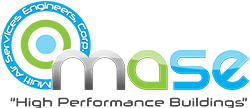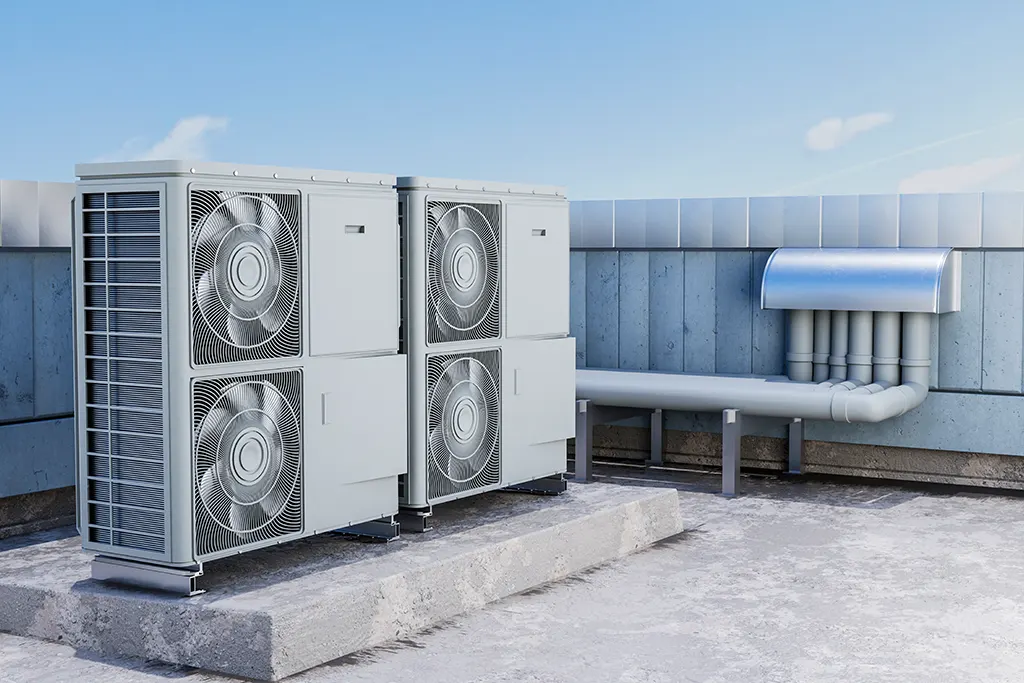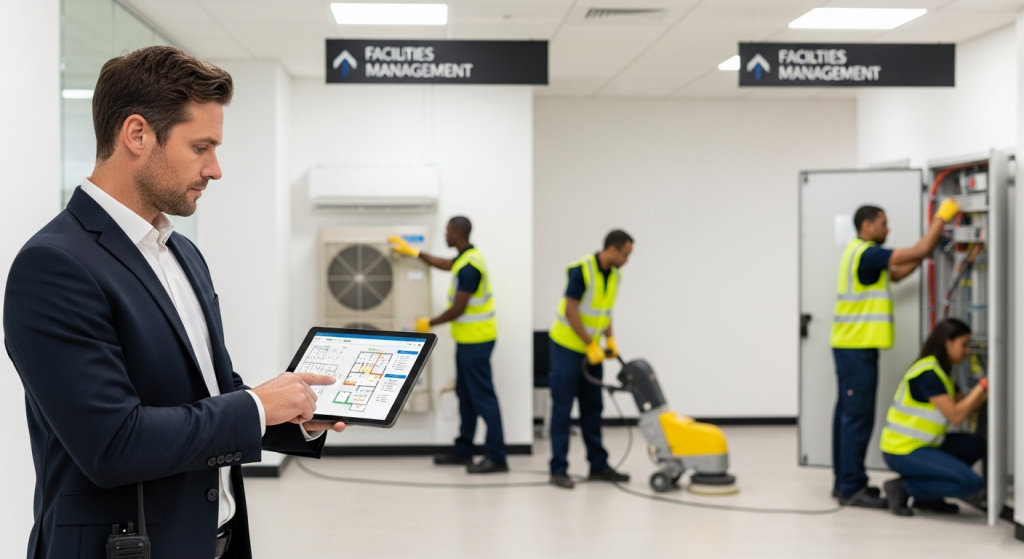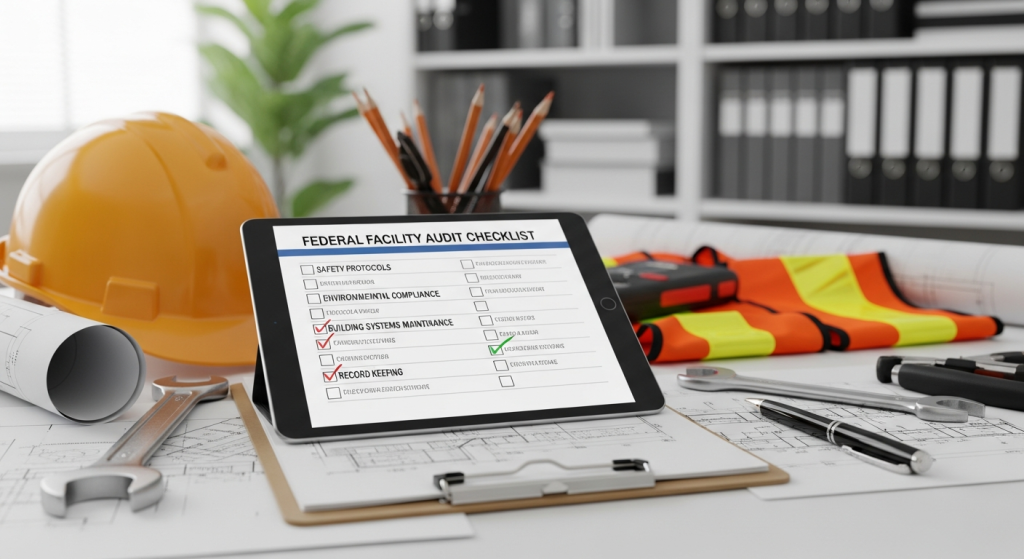An HVAC chiller is a critical component of the cooling systems in commercial buildings and industrial facilities. These powerful systems provide the necessary cooling effects to remove heat generated by solar gain, equipment, lighting, and electronics. Proper HVAC chiller installation and routine maintenance are essential for maximizing efficiency, prolonging the system’s lifespan, and reducing energy costs.
MASE specializes in tailored HVAC chiller services, from expert installation to scheduled maintenance, ensuring peak performance, reliability, and energy savings for your building’s cooling needs.
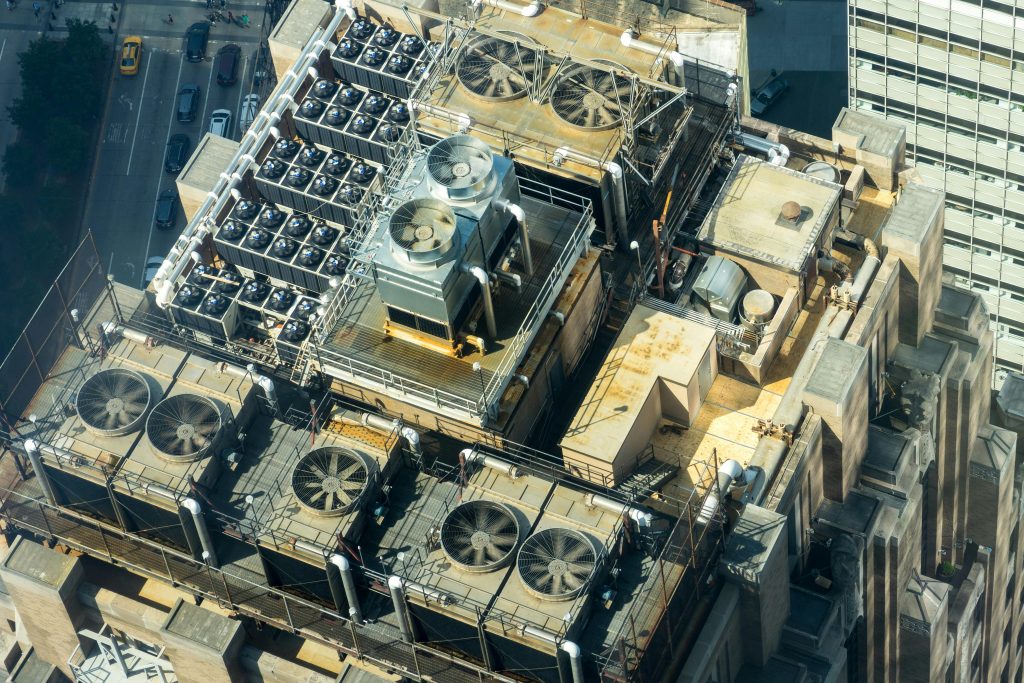
What is an HVAC Chiller?
Commercial buildings generate unwanted heat from various sources, including solar heat gain, occupants, and equipment. Air conditioning is therefore essential for maintaining a comfortable and productive environment. An HVAC chiller is a central component in many large-scale cooling systems, designed to remove heat from a liquid (typically water) to cool a building or specific areas within it.
While smaller buildings often use individual A/C units, centralized chiller systems are more cost-effective and essential for larger commercial or industrial buildings. Centralized systems utilize chillers, which are essentially large A/C units that operate differently, are significantly more powerful, and require specialized installation and maintenance.
How Does an HVAC Chiller Work?
Have you ever wondered how a chiller works? Chillers remove heat from a liquid or gas coolant. Chillers typically use a refrigerant to transfer heat from an evaporator through a condenser, operating on the vapor compression or vapor absorption principle. The machine maintains a constant coolant flow to the cold side of a process water system.
The coolant is then pumped throughout the facility, extracting heat and returning it to the process water system.
Chillers are commonly located on roofs for air-cooled applications or in basements for water-cooled models.
Air-Cooled vs. Water-Cooled Chillers: Choosing the Right Option
There are two main types of HVAC chillers: air-cooled and water-cooled. Understanding the difference is crucial for choosing the right system for your needs.
Air-Cooled Chillers
An air-cooled chiller typically funnels the refrigerant through coils with air forced over and across them by high-power fans that remove heat, venting it to the exterior of the building. They are well-suited for small to medium-sized facilities and require less space and water. Air-cooled chillers are typically less expensive to purchase and install than water-cooled chillers but may have shorter lifespans and can be less energy efficient.
Water-Cooled Chillers
A water-cooled chiller involves a secondary heat transfer from the refrigerant to water. The heated water is then circulated through a cooling tower to remove the heat that radiates into the air. Water-cooled chillers are commonly found in medium to large facilities such as shopping malls, hospitals, airports, and hotels. Where an adequate water supply is available, this equipment can be a consistent and efficient choice. They typically last longer than air-cooled chillers with regular maintenance.
Depending on the specific cooling needs of different industries and building types, various chiller configurations can be used. At MASE, we can guide you on proper selection, installation, maintenance, and best practices to ensure optimal performance, energy efficiency, and a long lifespan for your chiller system.
Essential Chiller Maintenance: Ensuring Reliability and Longevity
Regular HVAC chiller maintenance is crucial for all types of equipment to ensure consistent, optimal operation, reliability, and to avoid costly breakdowns. Although chillers are generally self-reliant, following the right preventive maintenance checklist is essential.
Tips for Maintaining Your HVAC Chiller for Optimal Performance:
Gather Manufacturer’s Guidelines: Collect maintenance guidelines and recommendations from the chiller’s manufacturer for specific maintenance needs.
Cleaning Condenser and Evaporator Coils: Regularly remove dirt, debris, and scale buildup to optimize heat transfer efficiency.
Lubricate Moving Parts: Applying lubrication to bearings, motors, fans, and other moving components reduces friction and wear, preventing substandard output.
Check Refrigerant Levels: Regularly test refrigerant levels and top them up as needed to ensure optimal chiller performance and adhere to CARB refrigeration standards.
Inspect Electrical Components: Test electrical connections, controls, sensors, and safety devices for proper operation to ensure chiller system efficiency and prevent workplace accidents.
Test Water Quality (for water-cooled chillers): Monitor water quality parameters and chemical treatment levels in all water inlets to prevent scale, corrosion, and microbiological growth.
Calibrate Temperature and Pressure Controls: Check setpoints and calibrate temperature and pressure controls as needed for optimal efficiency, adjusting controls based on seasonal needs.
Inspect Insulation and Seals: Regularly check insulation integrity and seals to prevent heat loss, air leakage, and refrigerant leaks.
Perform Vibration Analysis: Conducting vibration analysis on motors, compressors, and other rotating equipment helps detect potential issues early.
Test Safety Systems: Regularly test safety interlocks, alarms, and emergency shutdown procedures to ensure compliance with safety regulations.
At MASE, we offer specialized HVAC chiller maintenance services delivered by a team of experienced and skilled professionals. Our experts are equipped to handle every aspect of HVAC chiller maintenance, ensuring your systems operate at peak performance. From routine inspections to complex repairs, we take the guesswork out of maintenance, providing tailored solutions that align with your operational needs and industry standards.
Regular Maintenance for Optimal Performance
To ensure the smooth day-to-day operation of your facility, it is essential to understand what chiller maintenance includes and how to keep chillers in good operating condition through regular maintenance. With these tips, you can more easily prevent substandard output for all your assets across the heating and cooling seasons.
Keep Detailed Logs: Maintain a detailed and reliable maintenance log that includes all necessary information, like flow rates, operating temperatures, pressures, and fluid levels.
Remote Monitoring Systems: Implement remote monitoring systems to support daily logs on machinery, automate insight reports, and provide real-time diagnostics.
Chiller Safety Controls: Understand and maintain chiller safety controls to protect the cooling system and your employees from harm.
Regular maintenance can significantly decrease your potential chiller maintenance costs. Following the correct industrial chiller maintenance checklist also ensures proper heat transfer. An inefficient chiller condenser coil will also increase the amount of energy that your HVAC system uses.
How Chiller Maintenance Reduces Energy Costs
Maintaining your chiller system can significantly impact your energy bills and operational costs. At MASE, we understand how proper care can keep your systems running efficiently while saving you money.
When a chiller isn’t operating at its best, it uses more energy to cool the same space, driving up your power consumption. Regular maintenance ensures your system stays energy-efficient, helping to reduce your energy costs in the long run.
Addressing small issues early prevents unexpected breakdowns and costly repairs, extending the lifespan of your equipment. At MASE, we’re here to help you prioritize energy efficiency and protect your bottom line.
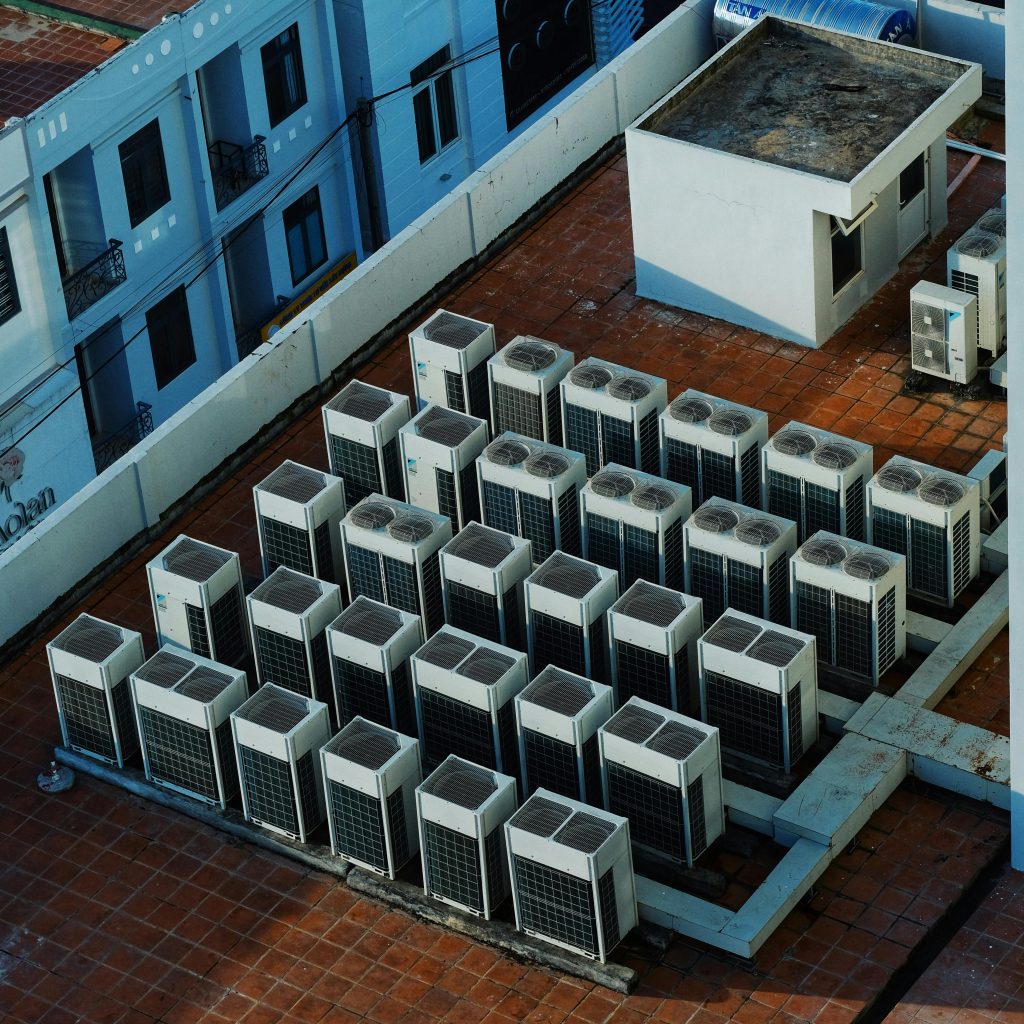
Why Partner with MASE for Chiller Installation and Maintenance?
One of the biggest issues we find today with chiller systems is the need for proper maintenance, which often leads to inefficient operation and increased annual running costs. Manufacturers typically recommend annual chiller maintenance.
Our comprehensive maintenance checklist includes:
Inspect tubes for efficient heat transfer
Treat and clean condenser water to prevent scale and corrosion
Lower entering water temperature
Measure and adjust the chilled water flow rate
Measure and top up refrigerant
Inspect the entire system for air and moisture leaks
Inspect compressor oil
Check the operation of starters and motors
Conclusion
In commercial buildings and facilities, HVAC chillers are essential for maintaining a comfortable and energy-efficient environment. They are the backbone of large-scale cooling systems, playing a vital role in regulating temperature and humidity. Different chiller types, including air-cooled and water-cooled models, each have specific maintenance needs.
By effectively removing heat, chillers play a vital role in regulating indoor temperatures. However, their efficiency and longevity depend heavily on proper installation and consistent maintenance. Neglecting these components can lead to increased energy consumption, higher operational costs, and unexpected breakdowns.
MASE understands the importance of reliable HVAC chiller systems and offers expert services tailored to meet your specific needs. From precision installation to routine maintenance, our team ensures your chiller operates at peak performance. With MASE’s professional support, you can enjoy a more sustainable, cost-effective cooling system that keeps your building running smoothly year-round.
